Hot chocolate instead of coffee, lazy mornings with no assignments and snowy movie nights, aka, a college student’s winter break. If you seek comfort in watching Hallmark movies and writing Christmassy romance stories, read on! We teamed up with the rom com screenwriting duo Kate Wharton and Heather Hughes to give you the scoop on making it in the film biz, Hallmark-style.
You may just find the perfect Hallmark formula for screenwriting a holiday script (cozy enough to rival your fluffiest blanket!).
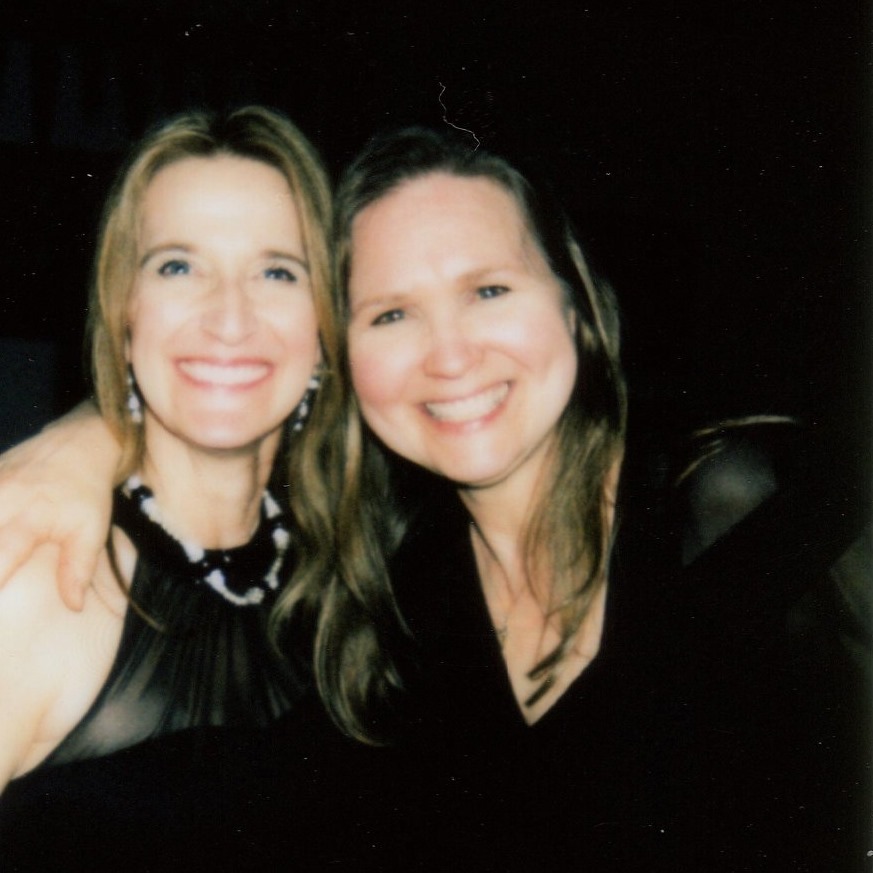
Q: You talk about writing scripts based on the different types of Christmas subgenres in your book, It’s Beginning to Look a Lot Like Hallmark! Writing a Made-For-TV Christmas Movie: The Unofficial Guide. Why should potential screenwriters note themes like these before writing a script?
Kate and Heather: When we started writing made-for-TV Christmas scripts, we began to notice that Hallmark and the companies that produce them had their own, very unique, familiar Christmas romance stories.
After a few years of classification, we identified seven specific types of story. We find that it makes it much easier to outline a new “Cozy Christmas Romance” movie when we identify which of these sub-genres we will be writing. Among the sub-genres we identified are The Christmas Switcheroo, The Christmas Fake-Out, Christmas Royalty, Snowstorms Ahead and the Christmas Cynic.
Once we recognized these sub-genres, we unlocked a secret template for writing CCRs. They help to make a map for your movie, and since most of these films are fairly predictable, it can be helpful to watch several of them that are similar to the thing you have in mind. For example, if you want to write a movie that involves actual Santa magic, you might watch a few and see that they all end up midnight. Knowing which sub-genre you are in can help you solve a lot of your plot problems! We didn’t want to pigeonhole anything by categorizing themes, but to instead help you with your writing, and also to become more familiar with what the audience likes.
Q: How competitive would you say the field is when optioning scripts and writing for Hallmark?

Kate: From our research, the Hallmark corporation has really dialed in their formula, so now they have it really tight the way they want it. They’re making more of them, and they don’t take as many variations in theme or plot.
Heather: They know their audience very well, and they know exactly what they want their audience wants. I predict a lot of these other corporations are going to double their number of movies as well, to catch up to Hallmark. They each have their different slices of audience that they cater their movies to.
Kate: They’re very popular, I think we read they have almost 85 million viewers, in just two months out of the year. And that’s just Hallmark! There’s Lifetime, UP TV and Netflix even makes several.
Q: What was your experience getting into the Hallmark brand, and what is your favorite part of writing for them now?
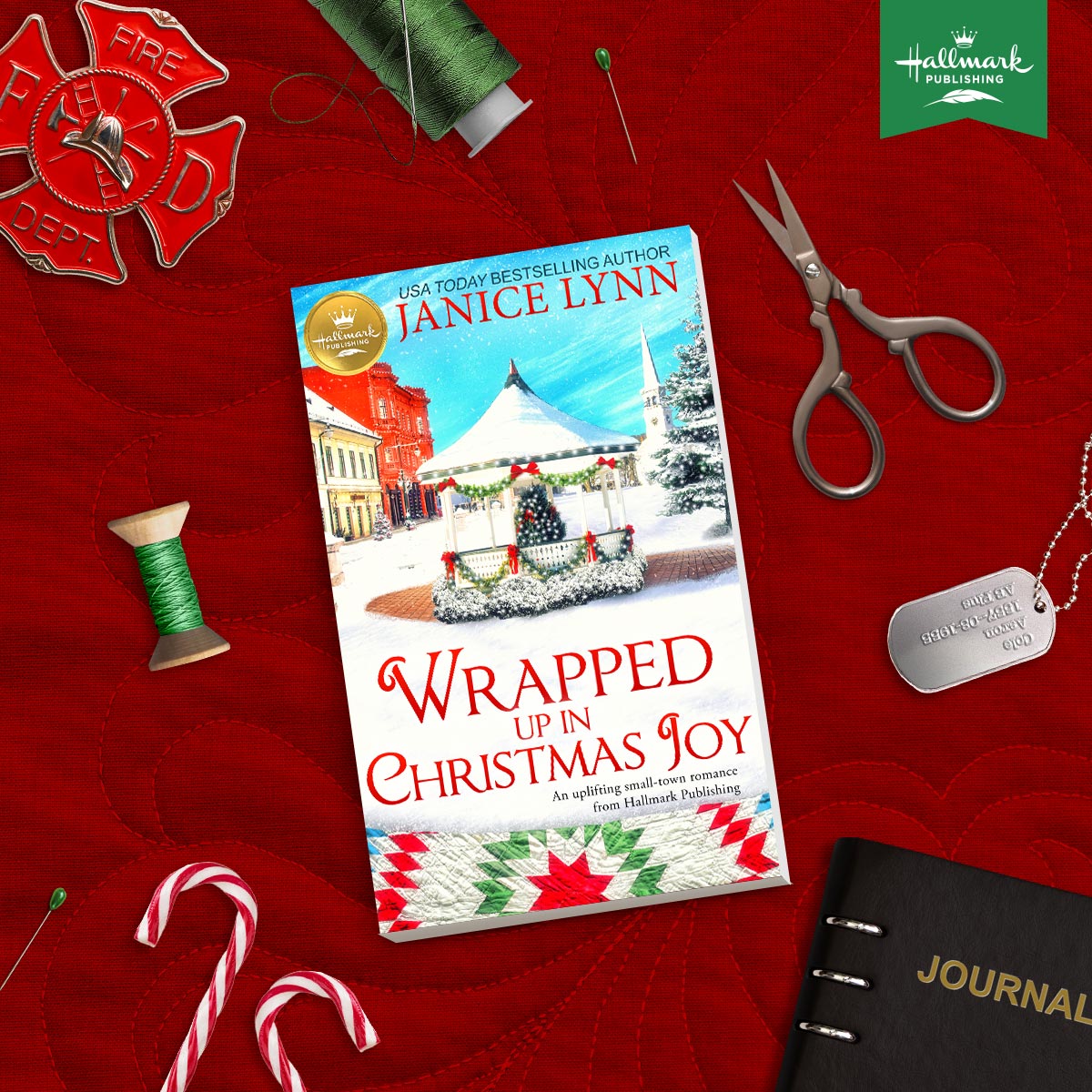
Heather: The way that we used to think about entering the market revolved around needing some sort of connection, or some way to get yourself noticed. Someone advised us to enter a screenwriting contest, and a producer had called the contest and asked to see the scripts. Ours was sent to him, and he happened to work at a company that supplies to Hallmark. We got our script “covered”, which is a screenwriting term for evaluated, and we did pretty well in their evaluation. Then we started working for them!
Kate: My favorite part? Working with Heather! But also, when we say Hallmark, we mean working with production companies that work with Hallmark as well. Some organizations create the movie on their own, and then go and distribute it to Hallmark. They work very quickly, and they know what they want. There is not necessarily a long, drawn out process, which can be very satisfying. It’s quite quick. They’ll say, we want a book-to-movie adaptation in three weeks. Now go!
Q: Do you take your plot straight from the books or make it your own?
Heather: It’s not so much inventing new bits of info when adapting books to screenplays, it’s more culling it down. We adapted a 400-page novel into a 25-page script, so it was really about cutting things and still telling the story. Especially when you’re adapting, because the reason why they probably optioned that book for adaptation in the first place is because it had a fan base, and you don’t want to alienate those who would come along naturally with that film. It’s all about finding that author’s true meaning to begin with.
Kate: Sometimes they’ll even start out as Hallmark movies and turn into books!
Q: It’s so nice to talk about these movies with you, because a lot of students my age rarely watch Hallmark films, or at least talk about them.
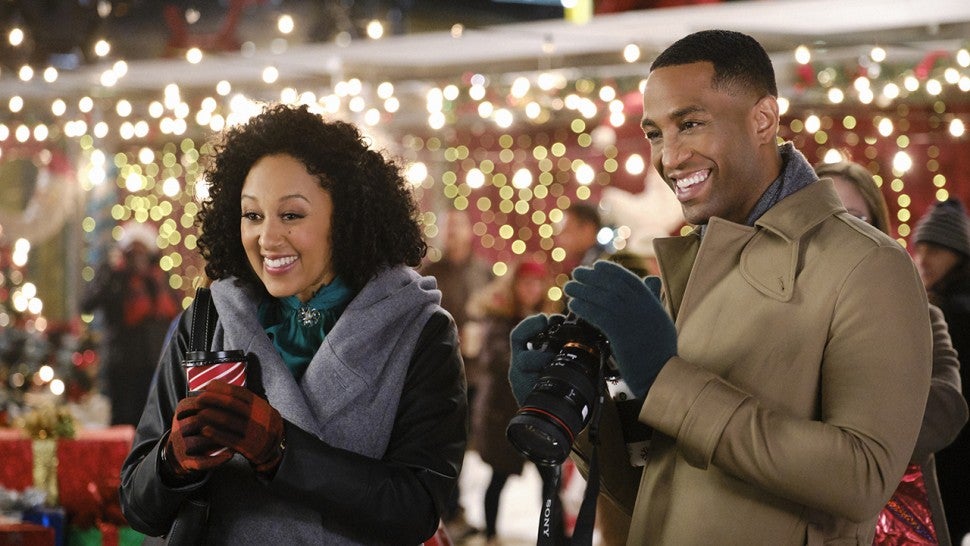
Kate: That was what we had to learn to embrace. In most screenwriting schools, they don’t have a lot of attention paid to how to write these movies. Most people want to write those gritty movies or shows like Breaking Bad, and some think these types of movies don’t carry the same esteem, the same cachet. It seems a little G-rated to most screenwriters who prefer things edgy; Hallmark is like a guilty pleasure. But, they’re still so popular.
Q: And I think these kinds of movies are so special. They’re something to look forward to after a stressful day; you watch and think, life can be happy!
Kate: That’s part of the secret sauce for writing holiday and Hallmark movies, and for screenwriters. These scripts are very safe, very predictable, warm and fuzzy. You know nothing bad is going to happen. For most of us, our lives are very chaotic, and they don’t represent this type of environment at all. It is a great escape to turn on a Hallmark movie, somewhere to get away for a couple hours, especially in 2020. Like, you even see people walking together!
Heather: We even researched that a lot of men watch these, but also a lot of veterans. Nothing in these films can trigger them or upset them; they’re like the “mac and cheese” of film. Comfort movies. If you allow yourself to admit it, a lot of people do like these movies. We even interviewed at Disney once, and they said, “We like to make movies that, if your 92-year-old grandmother was in the room, or your six-year-old niece wandered through, nothing would be unacceptable. That’s the same with Hallmark Movies; they’re gentle, and you wouldn’t rush to shut it off.
Q: I wouldn’t! Now, as professors of the “Writing the Rom Com” class, what sort of tips would you give to screenwriting students interested in writing these movies?
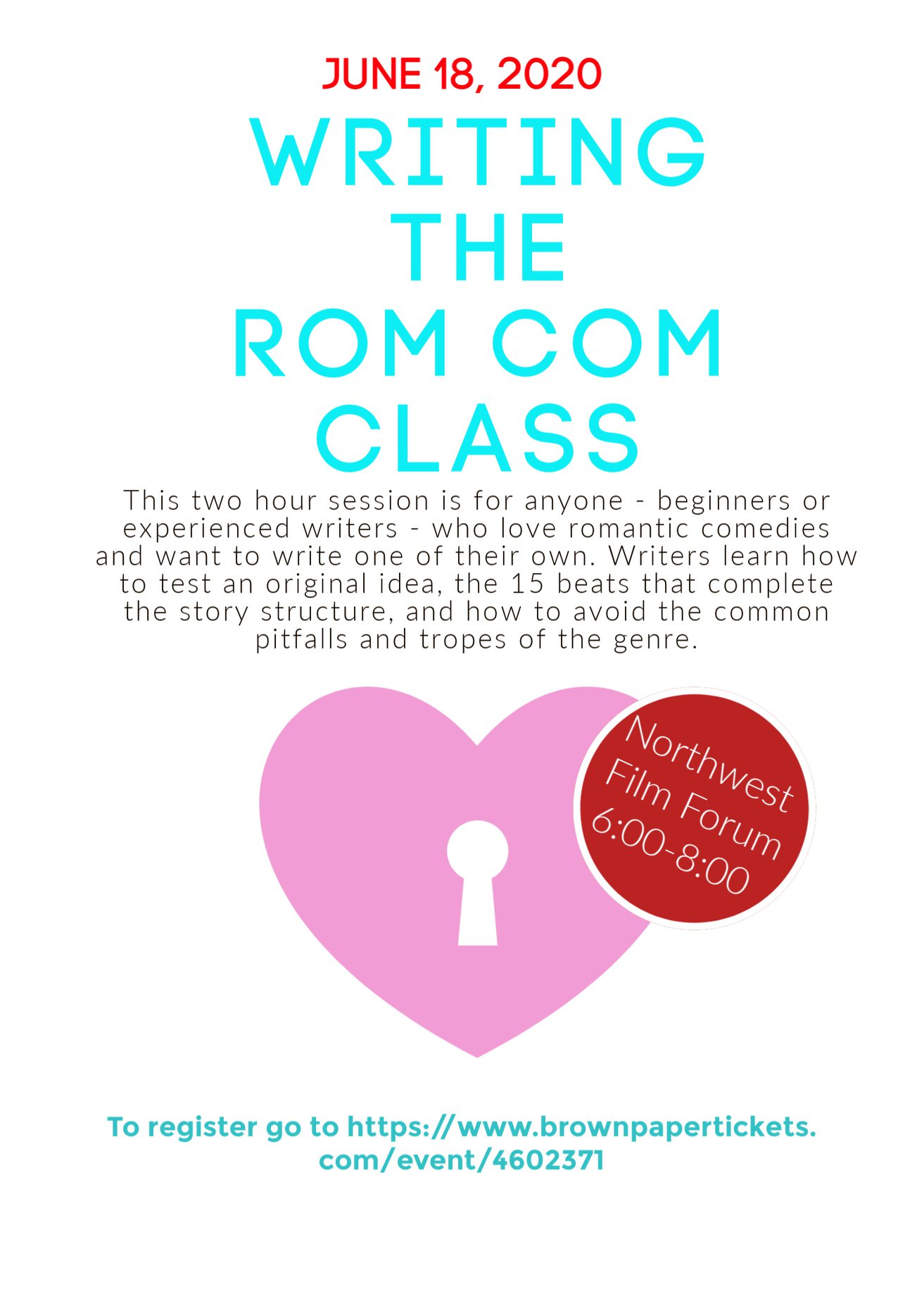
Kate: One of our teachers, the late, great Blake Snyder used to say that the challenge with writing romantic comedies is that once the couple gets together, the movie is over. So, happy couples are boring. In real life that’s lovely, but in the movie, you’re like, “Great they met and they get along, that’s a total snooze-fest.” Your main challenge is, what is keeping them apart? So, you have to create the challenge to keep them apart. Once you figure that out, then you have a movie. Essentially, if you just write about how two people fall in love, that isn’t really a movie. That’s just a sweet—
Heather: Anecdote from your friend! Another great piece of advice from Snyder is that in these movies, these two people are better together than they are apart. They are not a half of a whole, but two people who will live a bigger, fuller life together than they would if they never met each other, or if they ended up with someone else.
Kate: It’s a hard thing to put into drama, or something that you can film with a camera, because the thought process of rom coms can be kind of internal. “I really like him, he’s really amazing,” those are all internal rather than visual thoughts.
Heather: That’s why you see a lot of movie scenes with couples bickering, because it shows us what they are thinking out loud. You want to show their vulnerability, and how they are still loved once they expose the worst of themselves to a person. That right there is true love. And that’s why that level of vulnerability is used in these genres of movies.
Q: And just for fun, what is your favorite/or choice for the best written rom com?
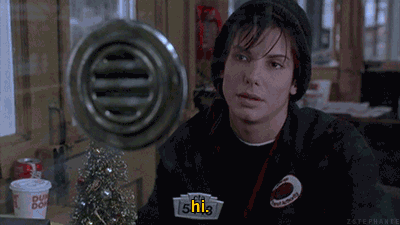
Kate: While You Were Sleeping, it’s an old Sandra Bullock movie. The plot device about why she can’t be with the guy is really charming and nicely written, and the plot is tight. I laugh and I cry every time, and it’s just so clever and warm. Actually, if they did it now, it would probably be a Hallmark movie! It was quiet in that sense. It’s really beautiful.
Heather: I really like Overboard. But if it happened in real life, it would be illegal.
Kate: But, it’s romantic and its funny. It’s a beautiful one to study. There’s a moment when she’s painting her nails, and she’s like, “I’m so tacky!”
Heather: “I’m tacky!”
Kate: But it works because its thematic, and she is tacky!
Heather: By studying a lot of movies, you’ll find that in the five to 10-minute mark, somebody will say something in dialogue that is the theme of the whole movie.
Q: What is the most common misconception for beginner screenwriters when writing a script?

Heather: For untrained students, the common misconception is that you just start writing, and you keep going until the end. For us, we need structure. We need to know how our movie ends and what’s going to happen in the middle before we start writing anything. People will say, “Oh I don’t need structure, I’m typing away. And I’ll say, are you on about page 50? That’s where you’re going to get stuck.” We can all write an exciting “meet-cute”, but what happens to that relationship after?
Kate: Also, if you never wrote a screenplay before, a misconception is that it’s similar to other genres. It’s different because it is essentially tight, and a different style of writing than a novel. A screenplay is a lot of what you see and hear, but not a lot of anything internal. All of what’s happening in a character’s mind won’t go in a screenplay. It’s all about what happens, about action and what they say, and having to distill your story into that is really challenging for most people. They put things in the screenplay that can’t be filmed.
Heather: Conversely, we wanted to write a novel. Yet, we were so trained to write what we see and hear, that it’s sometimes a roadblock for us, the thought process stuff. You have to remember, a screenplay never goes over 120 pages, so keep it short!
Kate: One page of the script should be around one minute of screen-time. Hallmark movies are usually around 84 minutes, so your script should be 85-100 pages give or take. Also, when you finish the screenplay, that’s not the end product. The screenplay is just a blue print for what the movie is going to look like. Write it all in the first draft, and in the second draft, find spots where thoughts can turn into dialogue, or exposition can turn into a gesture.
Q: For a film, screenwriting or English major, what experience is helpful for getting into this business?

Kate: Writing is the great equalizer. If you have a really great script, they won’t necessarily care about whether or not you went to some great film school, or they don’t need to see credentials. I would recommend reading books on screenwriting, reading scripts and just starting to write. You don’t need to go to film school to write a screen play, but there’s a big variety in how well film schools prepare you for writing.
Heather: My advice is that it’s important to get a job somewhere first. Go out and get different and interesting jobs and experiences to pull from. You might not end up writing about the coffee shop you worked in, but the relationships you viewed there could end up in your story. We know every kind of writer: people who wrote their way in, to the people who went to the best film schools in the country, so you can really make it work however you approach it.
Q: Do you have any stories or anecdotes about your experience as screen writers?
Kate: Well, one lesson we learned the hard way is that you need to have more things prepared to pitch than you expected. There were some we absolutely nailed, but they already had those in production. We prepared probably 20 things to pitch, about one or two sentences each, and we went through them in about 20 minutes. Still, it’s really delightful to have a writing partner, especially for banter!
Heather: We’ve really had so much fun working together.
Kate: Screenwriting shouldn’t be painful or the worst thing in your life. Some people feel like they’re bleeding all over the page, or that their words are like their soul. For us, writing rom coms and Hallmark movies, it shouldn’t be that awful! It should be pleasant, cheerful.
Heather: Life’s too short for anything but that.
Interested in writing for Hallmark or looking to achieve your screenwriting dreams? Check out It’s Beginning to Look a Lot Like Hallmark! Writing a Made-For-TV Christmas Movie: The Unofficial Guide by Heather Hughes & Kate Wharton on Amazon, or follow their blog at WritingtheRomCom.com and their Facebook page at We Heart Rom Coms.



















